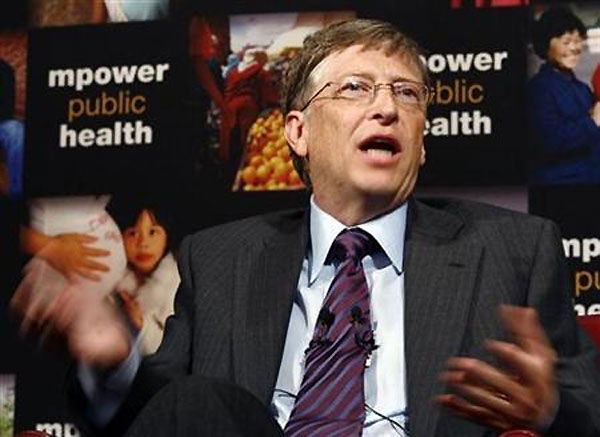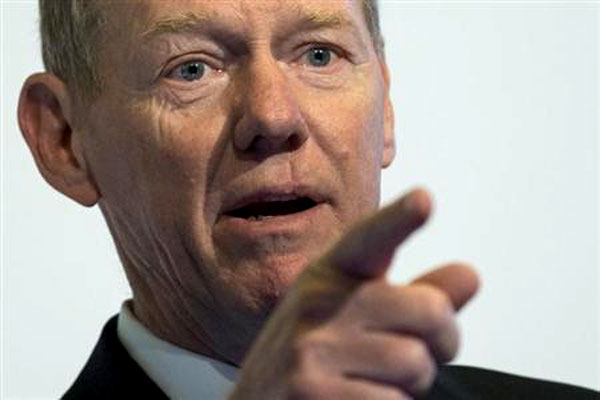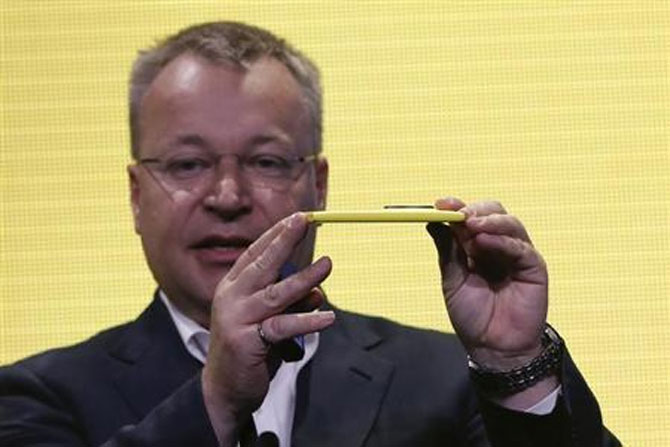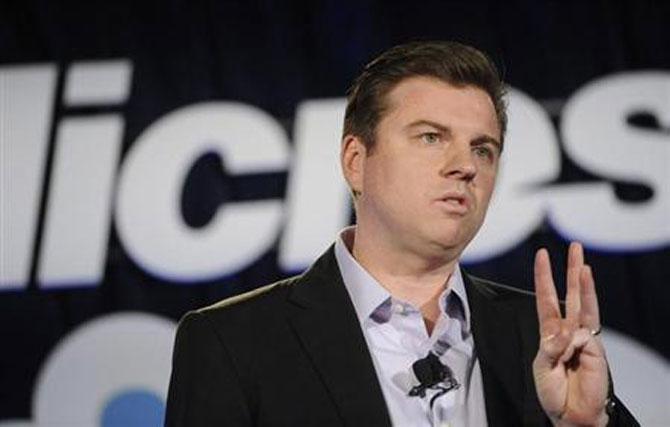 | « Back to article | Print this article |
Hyderabad man in race for Microsoft's top job
Microsoft Corp has narrowed its list of external candidates to replace chief executive Steve Ballmer to about five people, including Ford Motor Co chief Alan Mulally and former Nokia CEO Stephen Elop, according to sources familiar with the matter.
The world's largest software maker also has at least three internal candidates on its shortlist, including former Skype CEO Tony Bates, who is now responsible for Microsoft's business development, and Satya Nadella, the company's cloud and enterprise chief, the sources said.
Despite the narrower list - the company started with about 40 names - the process could take a few more months, the sources said. In August, Ballmer said he would retire within 12 months.
The names of other candidates could not be learned, but the search committee is interviewing executives from a wide range of sectors, including life sciences and consumer, the sources said.
Microsoft declined to comment on the process and on behalf of the internal candidates. A Nokia representatives could not be reached immediately for comment late on Tuesday.
Click on NEXT for more...
Hyderabad man in race for Microsoft's top job
Ford spokesman Jay Cooney said: "There is no change from what we announced last November. Alan remains fully focused on continuing to make progress on our One Ford plan. We do not engage in speculation."
Investors have pushed Microsoft's board in recent months to look for a turnaround expert, such as Mulally or Computer Sciences Corp CEO Mike Lawrie, to succeed Ballmer. Some investors have also suggested to the board that co-founder Bill Gates should step down from his role as chairman, saying he stands in the way of radical reform at Microsoft.
Microsoft remains highly profitable and last month beat Wall Street's quarterly profit and revenue forecasts. But it has lost ground to Apple Inc and Google Inc in mobile computing.
Ballmer has focused on making devices, such as the Surface tablet and Xbox gaming console, and turning key software into services provided over the Internet.
Click on NEXT for more...
Hyderabad man in race for Microsoft's top job
Some investors say that a new chief should not be bound by that strategy. They are concerned that, with both Gates and Ballmer up for re-election to Microsoft's board, they will retain their influence over the company.
Gates has focused his day-to-day efforts on philanthropy since 2008 when he vacated his office on campus. People close to him say he is not considering a return to the CEO position.
Members of the CEO search committee have been speaking with dissenting shareholders, according to sources familiar with the conversations.
Activist shareholder ValueAct Capital Management was offered a board seat by Microsoft in August. Several sources said the investor will also be given the same access as the board to the final five candidates.
Click on NEXT for more...
Hyderabad man in race for Microsoft's top job
CEO candidates
Mulally, 68, is credited with inspiring a cultural change that helped Ford reverse its losses and avert a federal bailout in 2009.
It remains unclear when Mulally will leave Ford, which he has led since 2006. He has repeatedly said he plans to adhere to his agreement to stay with Ford until the end of 2014.
But people familiar with the matter have previously said that Mulally is open to other opportunities and may leave Ford earlier if another job presents itself.
Click on NEXT for more...
Hyderabad man in race for Microsoft's top job
Elop ran Microsoft's business software division before jumping ship to Nokia in 2010. Although he is seen as an external candidate for the Microsoft CEO job, he is set to return to his former employer after the closure of its 5.44 billion euro acquisition of Nokia's handset business.
The Nokia deal, which came soon after Ballmer's surprise decision to retire, was widely seen as putting Elop among the list of successors.
Click on NEXT for more...
Hyderabad man in race for Microsoft's top job
Meanwhile, the two known internal candidates have been gaining prominence within Microsoft.
Tony Bates came to Microsoft two years ago as CEO of the acquired Skype and was recently elevated to lead the technology giant's business development and overall strategy.
Nadella's group is coming to the fore as the company struggles to catch up in online and mobile computing.

© Copyright 2024 Reuters Limited. All rights reserved. Republication or redistribution of Reuters content, including by framing or similar means, is expressly prohibited without the prior written consent of Reuters. Reuters shall not be liable for any errors or delays in the content, or for any actions taken in reliance thereon.





